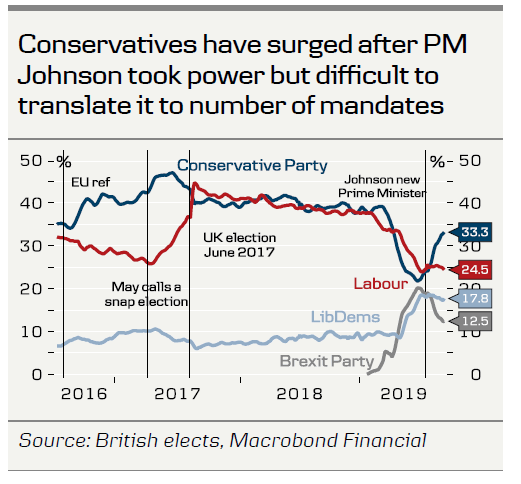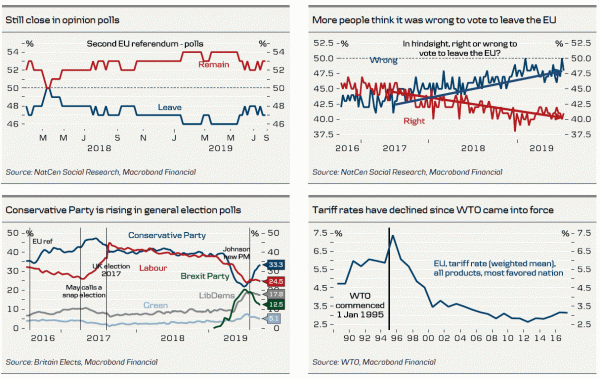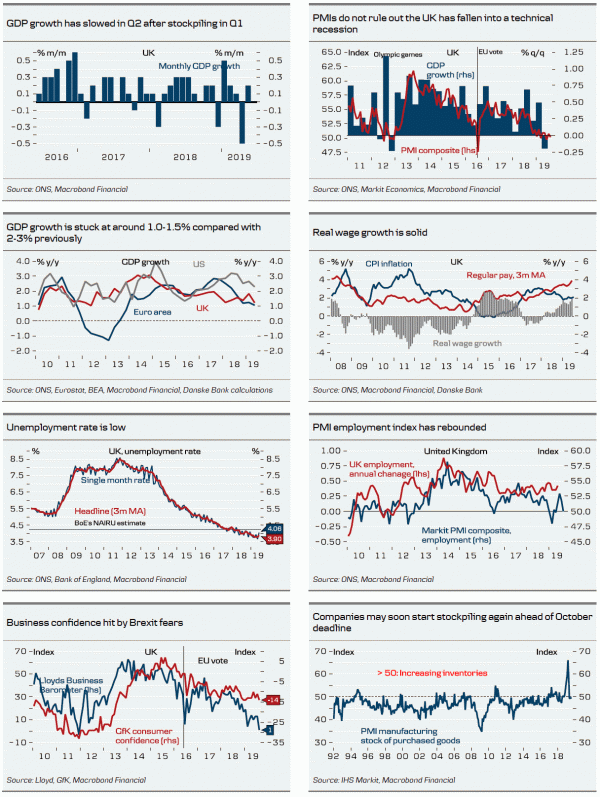Corbyn does not want election before 31 October
As expected, the House of Commons passed the Brexit delay bill, which is now being debated in the House of Lords (where the Government tries to ‘filibuster’ it). It will probably come into law on Friday.
In addition, as expected, PM Boris Johnson lost the vote on his call for a snap election (required two-third majority). The opposition does not trust Boris Johnson and wants to pass the Brexit delay bill first.
Still, a snap election seems unavoidable at this point. While it is not important when the politicians agree on a snap election, the choice of election day is very important. According to Laura Kuenssberg from BBC (twitter), Labour leader Jeremy Corbyn has said he will not accept an election day before 31 October, while PM Johnson wants the election to take place on 15 October before the EU summit on 17-18 October.
Eventually, the election result is the most important thing. Unfortunately, it is difficult to translate the polls to a number of mandates and hence it is extremely difficult to predict the election result, which most learned the hard way in 2015 and 2017
In other news…
Also yesterday, the so-called One Nation Conservative caucus (~100 Conservative MPs) issued a statement asking PM Boris Johnson to let the expelled Conservative rebels back into the party. We do not believe this will happen (see e.g. this tweet) and in our view, the Conservative Party has fully turned into a pro-Brexit party. The question is what it means for the many moderate Conservative politicians and voters over time.
Yesterday, the Bank of England published its updated scenario analysis of the ‘worst case’ no-deal Brexit (it is not a forecast of what will happen in case of a no-deal Brexit but what could potentially happen if everything goes wrong). Compared to the original analysis in 2018, the Bank of England now thinks the worst-case scenario is less severe, as the UK (and the EU27) is now more prepared than it was previously. The Bank of England now says GDP may drop as much as 5.5% and unemployment may rise to 7.5% (versus previously 8% and 7.5%, respectively) in the ‘worst case no deal no transition Brexit’-scenario.
The Markit PMI indices released this week reveal that we cannot rule out that the UK has fallen into a ‘technical recession’ in Q3 (two quarters of GDP contraction). This is not necessarily the same as a real recession with increasing unemployment but no doubt, the UK economy has slowed due to Brexit uncertainties. Private consumption is doing fine but the UK has been in an investment recession for a long time. Slower global growth and high global (political/trade) uncertainty do not help either



